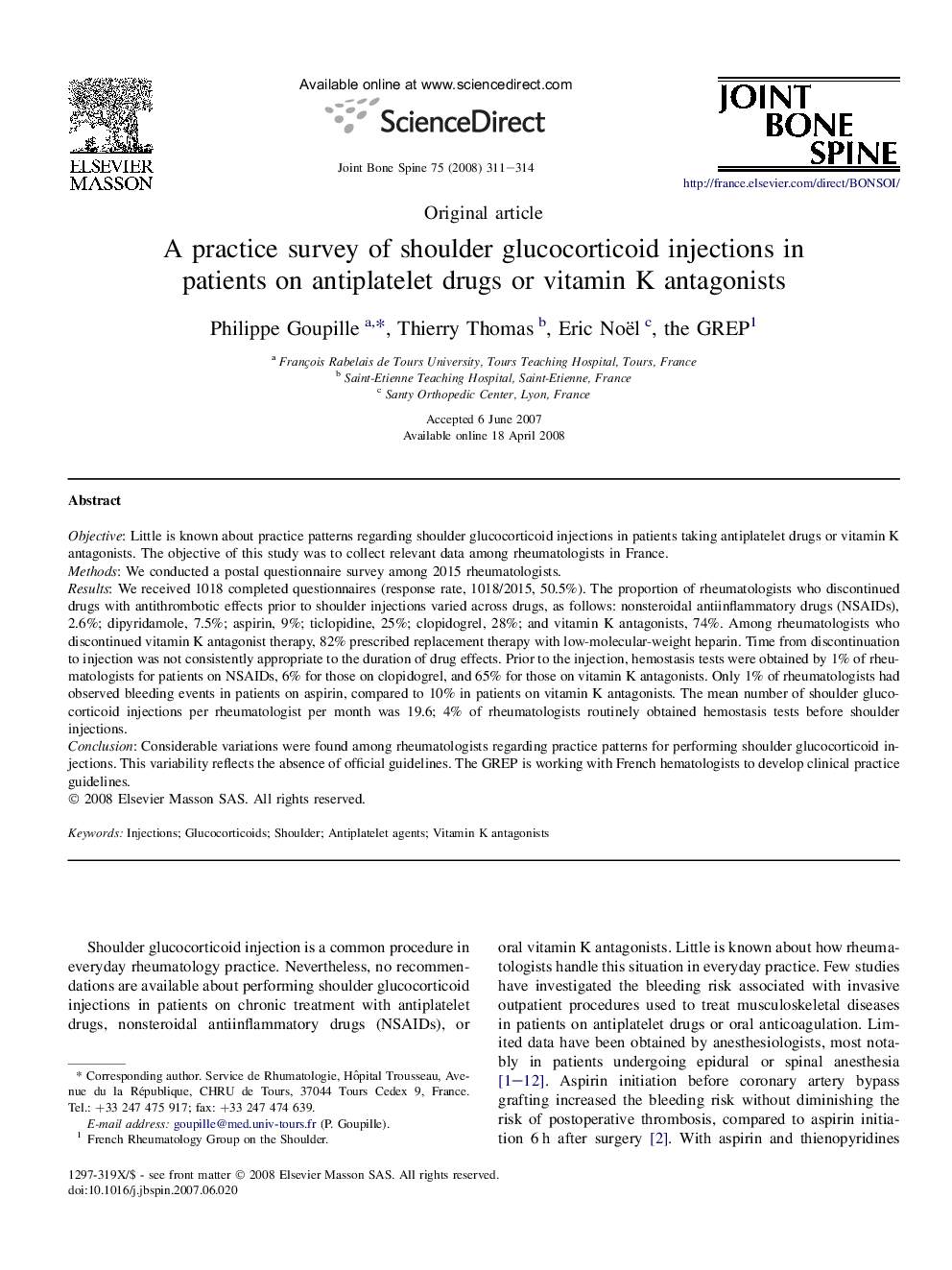| Article ID | Journal | Published Year | Pages | File Type |
|---|---|---|---|---|
| 3367232 | Joint Bone Spine | 2008 | 4 Pages |
ObjectiveLittle is known about practice patterns regarding shoulder glucocorticoid injections in patients taking antiplatelet drugs or vitamin K antagonists. The objective of this study was to collect relevant data among rheumatologists in France.MethodsWe conducted a postal questionnaire survey among 2015 rheumatologists.ResultsWe received 1018 completed questionnaires (response rate, 1018/2015, 50.5%). The proportion of rheumatologists who discontinued drugs with antithrombotic effects prior to shoulder injections varied across drugs, as follows: nonsteroidal antiinflammatory drugs (NSAIDs), 2.6%; dipyridamole, 7.5%; aspirin, 9%; ticlopidine, 25%; clopidogrel, 28%; and vitamin K antagonists, 74%. Among rheumatologists who discontinued vitamin K antagonist therapy, 82% prescribed replacement therapy with low-molecular-weight heparin. Time from discontinuation to injection was not consistently appropriate to the duration of drug effects. Prior to the injection, hemostasis tests were obtained by 1% of rheumatologists for patients on NSAIDs, 6% for those on clopidogrel, and 65% for those on vitamin K antagonists. Only 1% of rheumatologists had observed bleeding events in patients on aspirin, compared to 10% in patients on vitamin K antagonists. The mean number of shoulder glucocorticoid injections per rheumatologist per month was 19.6; 4% of rheumatologists routinely obtained hemostasis tests before shoulder injections.ConclusionConsiderable variations were found among rheumatologists regarding practice patterns for performing shoulder glucocorticoid injections. This variability reflects the absence of official guidelines. The GREP is working with French hematologists to develop clinical practice guidelines.
